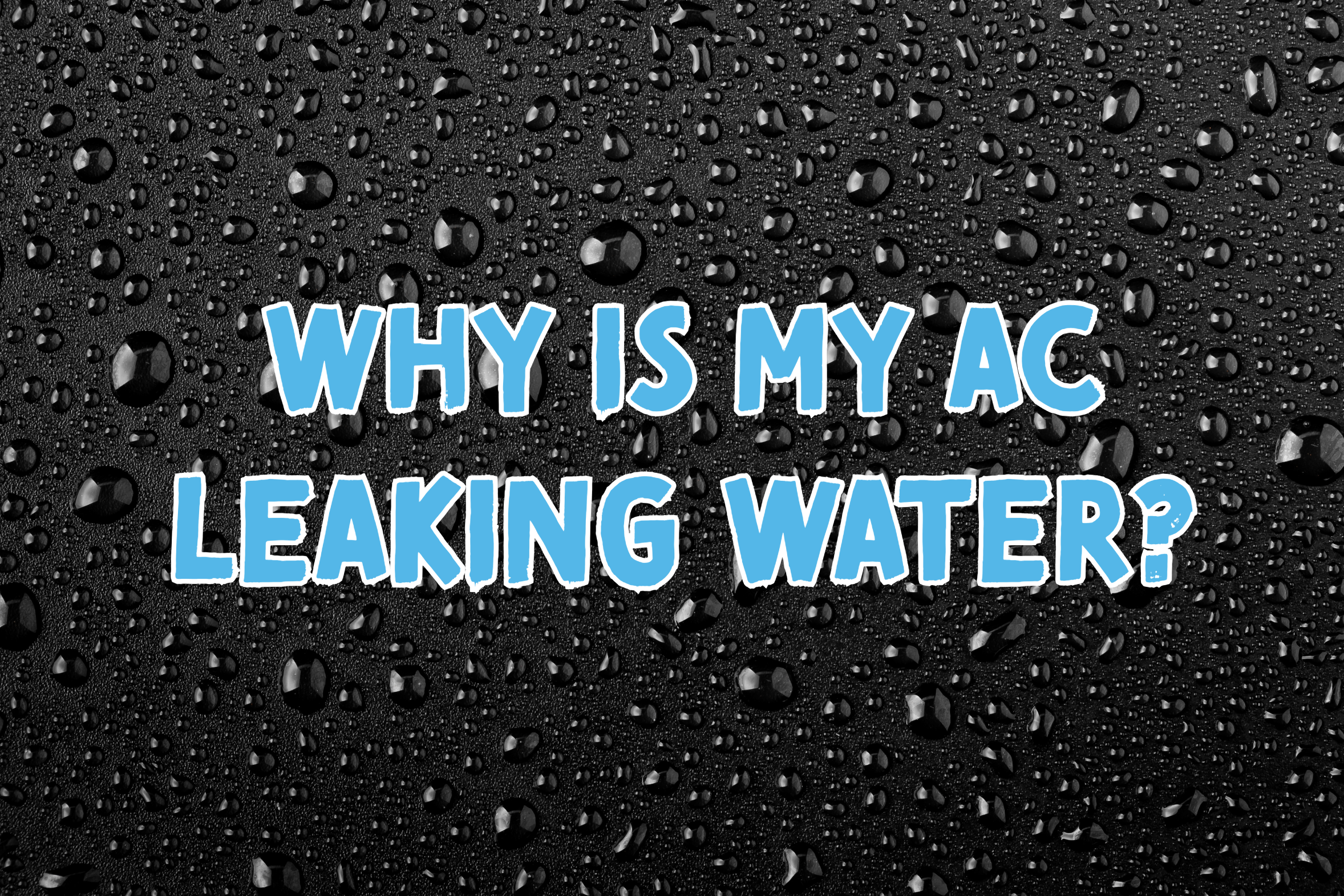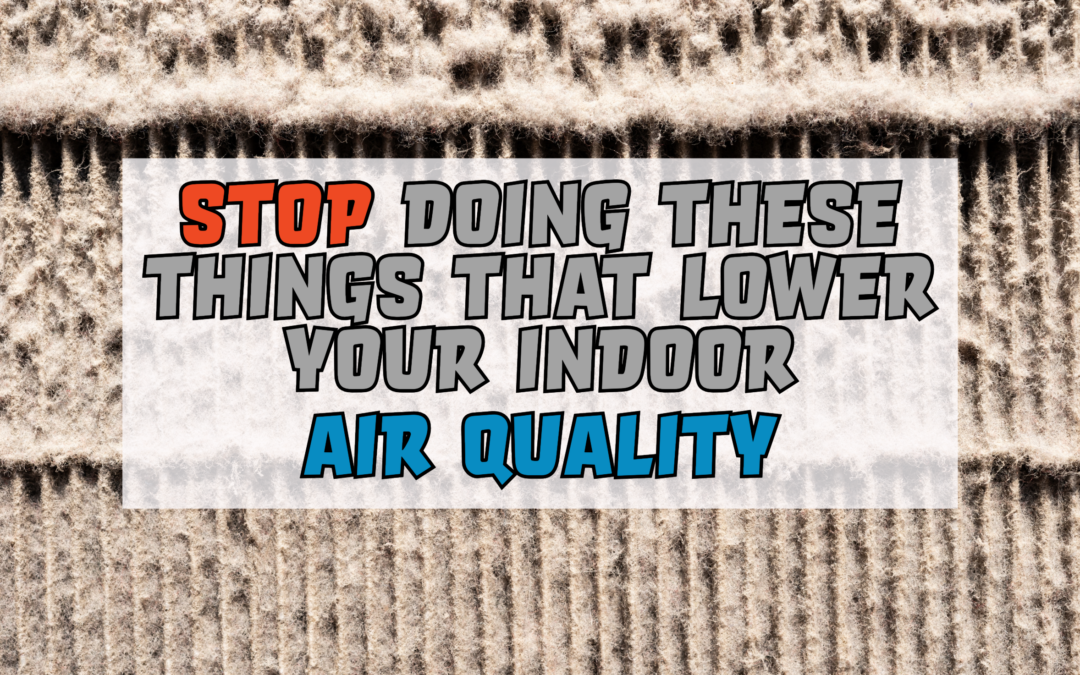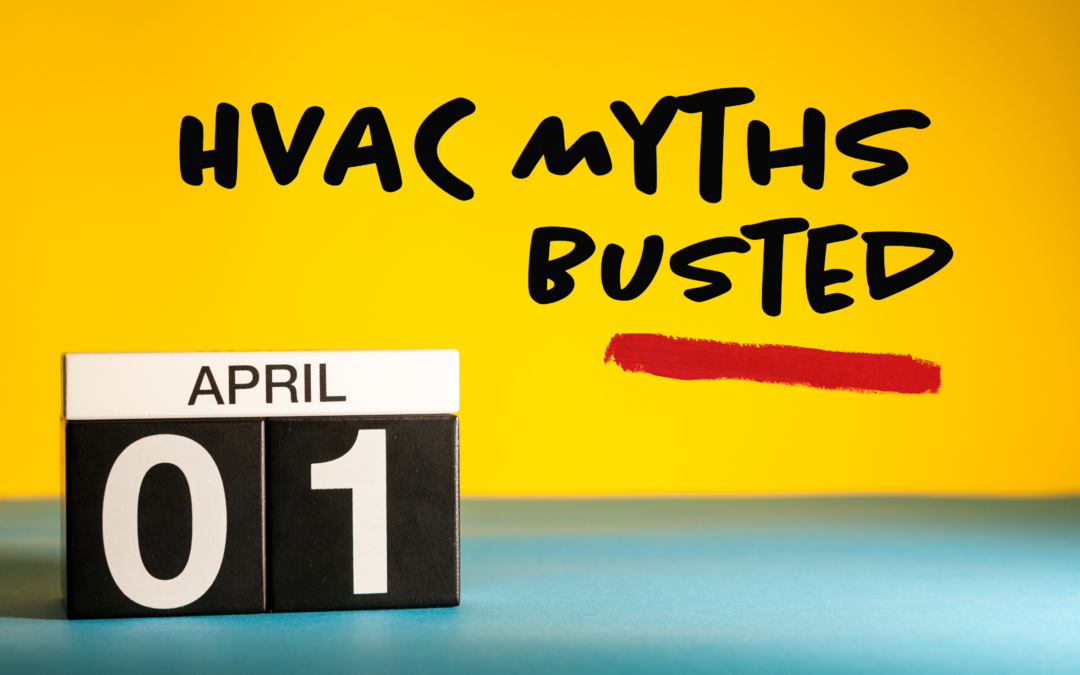Let’s face it; Ohio summers can be scorching! Your AC has probably been running nonstop to beat the heat. Unfortunately, when your AC works overtime, it might start leaking water. We know this can be super alarming, but don’t worry—your New Albany Heating & Cooling pros are here to help you figure out what’s going on.
Components to Consider When Your AC Is Leaking:
- Consider the Thermostat
- Consider the Evaporator Coil
- Consider the Condensate Drain
- Consider the Damaged Condensate Drain Pan
- Consider the Refrigerant
- Consider the Condenser
1. Consider the Thermostat
Your thermostat decides how cold the evaporator coils need to be to hit your home’s set temperature. If too much water condenses on the coils, it can start “leaking”. So, if your thermostat is on the fritz, your AC will be, too.
Think of your thermostat as the “mothership” of your HVAC system. If the mothership goes down, the whole fleet follows. When a thermostat malfunctions, it can’t properly communicate with your HVAC system—telling your AC when to turn on and off, push out air, and so on. A lot of system issues can actually be traced back to a faulty thermostat. So, if your air conditioner is acting up, the first thing to check might just be the thermostat.
2. Consider the Evaporator Coil
One of the main reasons an AC might leak water is because the evaporator coil freezes. This usually happens when the air filters are too clogged, preventing enough air from blowing over the coils. When this happens, the coils can get so cold that they freeze up, causing water to drip off.
You can fix this issue by:
- Checking the Air Filters: Make sure to check your HVAC air filters. Even though they should be replaced every 1 to 3 months, it’s always a good idea to double-check. A clogged filter might be the reason for your leaky air conditioning, and simply swapping it out could solve the problem!
- Changing Your Thermostat Settings: First, you’ll need to thaw that frozen evaporator coil to stop the drips and leaks. Try raising the thermostat temperature a few degrees to help it along. If your entire unit is frozen, it’s best to turn off the cooling and switch on the fan instead.
3. Consider the Condensate Drain
Your condensate drain might be clogged. It’s the pipe that carries water from the drain pan to the outside. If it gets blocked, the water that’s supposed to drain out can back up and leak outside the pan.
We don’t recommend trying to fix this yourself unless you’re okay with possibly damaging your pipes or system. A clogged condensate drain can cause various AC issues, but it’s an easy fix for a qualified, licensed technician.
4. Consider the Condensate Drain Pan
Now, let’s talk about the condensate drain pan. This pan catches the water run-off from the evaporator coil as it cools the air. If the drain pan gets worn out or damaged, you might end up with water leaking onto the floor.
Troubleshooting this issue is pretty easy. If this is what’s going on for you, just replace the old or damaged drain pan with a new one. Be sure to follow the manufacturer’s instructions carefully. However, if you’re not feeling confident about doing this, we’re more than happy to help out.
5. Consider the Refrigerant Levels
When your air conditioner’s refrigerant levels drop, so does the pressure inside the unit. This can cause the evaporator coils to freeze, leading to a messy, wet situation. Watch out for these signs of low refrigerant:
- Hissing or bubbling sounds coming from the AC unit
- Ice on the evaporator coils
- The AC is not blowing out “cold” air
- Water leakage
The quickest way to get this fixed is to call a licensed technician. They have the right refrigerant and equipment to safely refill your air conditioner.
6. Consider the Condenser
Did you know your air conditioner can “sweat”? It’s just condensation forming when warm, humid air meets the cool exterior of the AC unit. This extra moisture can make it look like your AC is leaking, but it’s usually nothing to worry about.
So, if this is the case for your particular situation, keep in mind that a little condensation isn’t a big deal—it happens. But if your unit is “sweating” excessively, it’s time to call in a professional. The last thing you need is water damage or a busted AC because of an ongoing issue.
Your safety and comfort mean the world to us! If your air conditioner is leaking and you can’t figure out why, just give us a call. We’d be thrilled to help and provide you with our top-notch service.
You can beat the heat with the help of your New Albany Heating & Cooling family! Call us today at (614) 636-5002, or schedule an appointment online now by clicking here!






